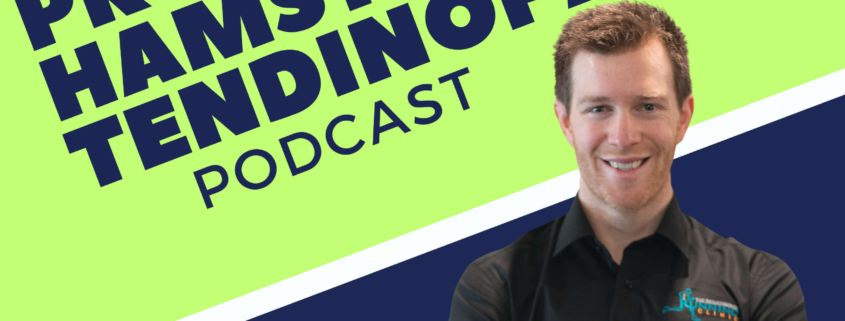Do we overtrain or under-recover? with Dr. Izzy Smith
Dr. Izzy Smith is a specialist in hormone health and today we focus on all things hormones, stress & recovery. Firstly, Izzy talks about the concept of ‘over-training vs under-recovering’. We then move onto the role of certain hormones that hinder and enhance our ability to recover. We all know the body will struggle to recover if subject to large amounts of physical stress, but Dr. Izzy Smith highlights the role of emotional & psychological stress as equally important states. We simple cannot recover to the same ability if subject to these psychological stressors. We finish off today’s episode with some listener Q&As around magnesium supplements, Vitamin D supplements and anti-inflammatory medications for recovery. You can find Izzy’s Podcast Behind the uniform here Also click the link for Izzy’s instagram Click here to learn more about the PHT video course & to receive your 50% discount If you would like to learn more about having Brodie on your rehab team go to www.runsmarter.online Or book a free 20-min physio chat here
Title: Proximal Hamstring Tendinopathy: How Stress Affects Recovery and Injury Prevention
Introduction
In this episode, we dive deep into the topic of proximal hamstring tendinopathy. We are joined by Dr. Izzy Smith, an endocrinologist with expertise in hormone health and women’s health. Dr. Smith sheds light on the crucial connection between stress, recovery, and the risk of injuries like proximal hamstring tendinopathy. If you’re an athlete or someone dealing with buttock pain when sitting or pain in the bottom when sitting, this article is for you.
Understanding Recovery: The House Analogy
Dr. Smith introduces a fascinating analogy to help us grasp the importance of recovery in injury prevention. Think of your body as a house subject to harsh weather conditions (external load). Just like a house, your body can withstand some damage, but it’s essential to repair the weak links and reinforce them. The repair process is what makes you more robust. Similarly, in recovery and rehabilitation, it’s not just exercise that makes you stronger; it’s the recovery afterward that restores and rebuilds.
Meet Dr. Izzy Smith
Before diving deeper into the relationship between stress and recovery, let’s get to know Dr. Izzy Smith. She’s a medical doctor specializing in endocrinology, focusing on hormone health. She’s also a passionate athlete with a love for running and triathlons. Dr. Smith’s expertise lies in understanding the impact of hormones and stress on our bodies.
The Concept of Overtraining vs. Under Recovering
Dr. Smith introduces a critical concept: overtraining vs. under recovering. This idea highlights the importance of recovery in athletic performance and injury prevention. It’s not just about pushing your limits in training; it’s about ensuring your body has the opportunity to recover fully. Under recovering due to factors like psychological stress can hinder your progress and increase injury risk.
How Stress Affects Recovery
Dr. Smith delves into the impact of stress on the body’s recovery mechanisms. She explains that stress triggers the release of hormones like cortisol and noradrenaline, preparing the body for a fight-or-flight response. When you’re under psychological stress, your body is in a constant state of alertness, making it challenging to switch into the rest and recovery mode needed for healing and adaptation.
Tips for Managing Stress and Promoting Recovery
Now, let’s explore some practical tips for managing stress and promoting recovery:
- Adjust Training Intensity: If you’re experiencing high levels of psychological stress, consider lowering the intensity of your workouts temporarily. Your body may not tolerate high-intensity sessions during stressful periods.
- Prioritize Sleep: Ensure you get enough quality sleep. Aim for at least eight hours a night and maintain a consistent sleep schedule.
- Limit Caffeine: Avoid consuming caffeine after midday to improve sleep quality.
- Reduce Screen Time: Cut out blue light from screens before bedtime to support your body’s natural melatonin release.
- Practice Mindfulness: Incorporate mindfulness and meditation practices into your daily routine to manage stress.
- Avoid Alcohol: Alcohol can disrupt sleep and increase stress, so consider reducing or eliminating alcohol consumption.
- Outsource Stressors: If possible, delegate or outsource tasks that contribute to your stress load. This might include household chores or meal preparation.
Listening to Your Body
Dr. Smith emphasizes the importance of listening to your body. As you gain experience as an athlete, you’ll become better at recognizing when your body needs rest and when it can handle higher training loads. Remember that it’s okay to adjust your training plan to accommodate your body’s needs.
Conclusion
Understanding the relationship between stress, recovery, and injury prevention is essential for athletes and anyone dealing with conditions like proximal hamstring tendinopathy. By implementing stress management strategies and prioritizing recovery, you can optimize your athletic performance and reduce the risk of injuries. Remember, your body’s ability to heal and adapt relies on the rest you give it, so make recovery a fundamental part of your training journey.
